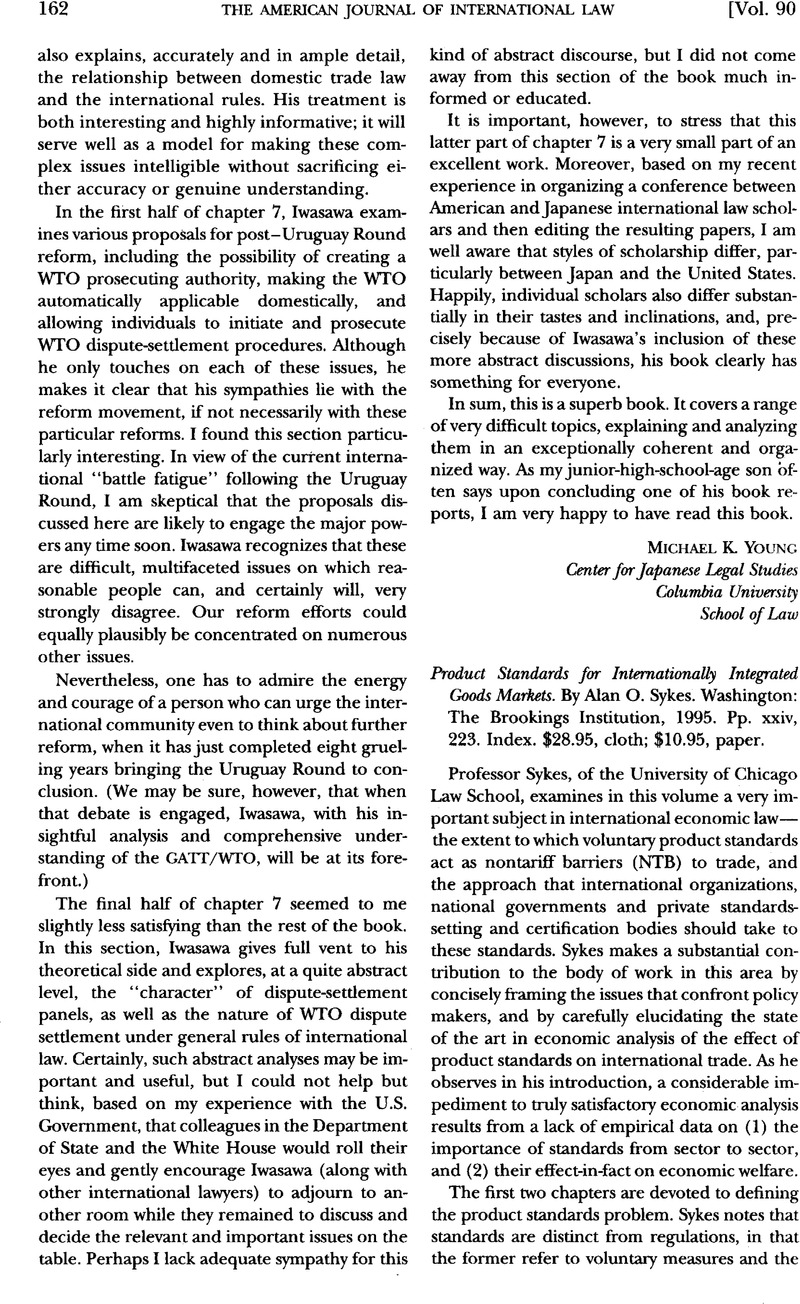Published online by Cambridge University Press: 27 February 2017

1 The footnote provides that “a measure is not more trade-restrictive than required unless there is another measure, reasonably available taking into account technical and economic feasibility, that achieves the appropriate level of sanitary or phytosanitary protection and is significantly less restrictive to trade” (SPS Agreement, Art. 5, para. 6, n. 3). By explicitly stating that an alternative measure must be significandy less restrictive to trade, the Agreement gives additional flexibility to members adopting measures deviating from international standards. It should be noted that the above-described provisions were adopted under considerable pressure from environmental interest groups. Sykes notes that there is some new language, but he does not probe its potential significance.
2 The potential for trade conflict among the EU, NAFTA and GATT/WTO members arising from different institutional approaches to technical standards and SPS issues is not specifically addressed.
3 The book puts aside the subject of the impact of international standards on the environment, referring to another book in the same Brookings Institution series. Two commentaries on Sykes’s work (by Kalypso Nicolaidis and Jacques Pelkmans) follow the Sykes text, and Nicolaidis focuses on environment-related concerns.